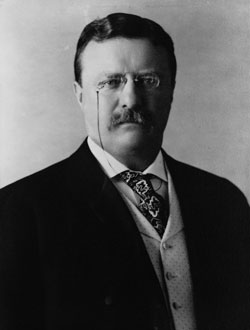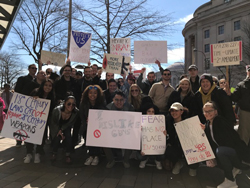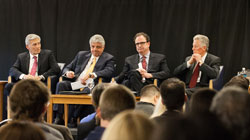With the withdrawal of Russian military forces from in and around Kyiv’s suburbs, Ukrainian forces re-entering towns have made a shocking discovery: bodies covering the streets, sites of mass graves, ruined infrastructure, alongside looted stores and homes. In the suburb of Bucha in particular, just an hour drive from Kyiv, the scene was particularly bleak. Dead bodies, mostly males, some with their hands zip tied, laid out in the open in the streets. Bucha is not the only city to suffer from these atrocities. Irpin, another suburb of Kyiv where Russian soldiers were filmed shooting at Ukrainian families, was dealt a similar fate. The Ukrainian Defense Ministry published a tweet stating, “during the first 2 days alone, 410 bodies of killed Ukrainians were found in the liberated districts of the Kyiv region – Bucha, Irpin and other towns and villages. The exact number of victims of Russian occupiers, unfortunately, will be much higher.” As international outrage begins to mount over the alleged Russian war crimes in Ukraine, Moscow has put out a variety of statements labeling the bodies as actors, that the bodies were “placed” and stating that Ukraine is framing the killing of these civilians. However, an investigative report conducted by the New York Times shows through satellite images that these bodies have been present for weeks. One of the more disturbing stories documents the death of Motzhyn mayor Olga Sukhenk, who was kidnapped and killed by the Russian military, with her body and the body of her husband left in a mass grave. Her family was then also subsequently tortured and murdered, according to Anton Heraschenko who spoke to the New York Post.
Another concerning development is the alleged Russian usage of what’s being called “filtration camps.” According to a tweet from the New York Times, “Tens of thousands of Ukrainians are reportedly being taken to what are being referred to as filtration camps in Russia, where their passports and phones are being taken away, and family members are being separated.” The US Ambassador to the United Nations can be quoted as saying, “I do not need to spell out what these so-called filtration camps are reminiscent of. It’s chilling, and we cannot look away.” The revelation of these filtration camps comes amidst reports that the Russian military is engaging in a systematic campaign of kidnapping Ukrainian civilians and sending them to Russia, with fears being raised that the kidnapped Ukrainians are being used for forced labor and other purposes.
In the face of these atrocities, the international community has brought forward an infuriated response and have outlined plans to further sanction Russia and potentially punish its leadership for these actions. US President Joe Biden has gone on record stating that the killings in Bucha are war crimes, and called for a trial against Vladimir Putin concerning the trials. Biden stopped short of calling the killings a genocide, but did state that further sanctions were being considered and coordinated with the EU and G7. Some of these sanctions include a US ban on investment in Russia and the EU implementing a ban on the import of Russian coal. The US also planned to expand sanctions against Russia’s financial sector and state-owned corporations, while also applying sanctions to certain Russian officials and their families. On top of their coal ban, European officials are also considering banning most Russian trucking and shipping into the bloc, alongside the potential sanctioning of Vladimir Putin’s two daughters. On top of these sanctions, other potential sanctions include those against countries that still trade with Russia, and also sanctions against Russian economic sectors that have not faced them yet, including transportation, mining, and other elements of the financial industry. Germany has also temporarily seized control of the German subsidiary to the Russian Gazprom oil company. Officials in Ukraine have openly called for an investigation into the killings by the International Criminal Court, while Jens Stoltenberg, the Secretary General of NATO, summed up the situation as violence not seen in Europe against civilians in decades.
On April 5, Ukrainian President Zelenskyy spoke to the United Nations Security Council, where he actively called on the body to either remove Russia, one of the permanent members with veto power over certain measures, or to outright dissolve the body. Zelenskyy urged the body to ensure it passes on an effective UN to the next generation, and that if it cannot resolve its problems it must reform itself. Zelenskyy also discussed the importance of a strong UN as an underpinning to global security architecture, highlighting the importance of countries following international laws and norms to ensure the system functions properly and isn’t abused.



